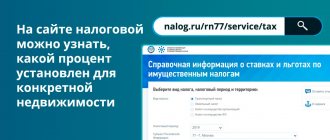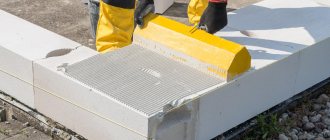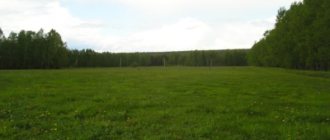Who pays property tax
Officially it is called personal property tax. It is paid by the owners of studios, penthouses, apartments, apartments, country houses, offices, shops, etc.
Even if a person does not live in this premises, but is its owner, a notification will be sent from the tax service about the need to make contributions.
If the owner owns a share, then the tax will be paid in accordance with its size. The tax presupposes the availability of benefits that apply to vulnerable segments of the population. The largest group is pensioners. They have payment subsidies.
Benefits apply to the following types of premises:
- apartment, hotel;
- separate room;
- country house;
- garage;
- a non-residential building adapted for storage, if its area is no more than 50 sq.m;
- territory for creative purposes.
Similar real estate properties are paid according to a special scheme. For similar apartments, tax will have to be paid only for one of them, for the second one will be charged according to the general rules.
Tax payment is possible through a bank or on one of the state portals. The duty is paid in the year following the end of the tax period.
How to switch to a patent tax system?
The procedure for switching to a patent is as follows:
- Submit an application to the Federal Tax Service at the place of registration of the individual entrepreneur 10 or more working days before you start using the PSN. You can submit your application by mail or electronically. The application form was approved by order dated December 9, 2020 No. KCh-7-3/ [email protected]
2. Five working days after receiving the application, the Federal Tax Service must issue you a patent or notify you of the refusal against receipt.
Why they may refuse:
- A type of activity is indicated that is not included in the list of eligible patents.
- Incorrect patent expiration date.
- You already lost the right to enforce the patent this year, and this is your re-application.
- You have patent tax debts.
How long does a patent last?
You can be on this tax system from a month to a year, but within one calendar year. That is, you cannot obtain a patent from March 10, 2021 to March 10, 2022, until a maximum of December 31, 2021. Then you need to get a new patent. As you probably guessed, you can get a patent for less than a month.
How to calculate property tax
There is no need to determine the amount of tax yourself; the tax office will indicate the final figure in the notification.
State duty until 2015
Previously, payments were calculated based on the inventory value of housing. It was determined by the costs of building materials and finishing, and the wear and tear of the building was also taken into account. The inventory value was often lower than the market price.
Tax deduction for area
It does not apply to benefits. The deduction is available to all categories of taxpayers, even if you own a penthouse or one-room Khrushchev apartment.
Property tax is not charged on the area that falls under the deduction. It is paid only from the difference. The area of the apartment is reduced by 20 sq.m., rooms - 10 sq.m., houses - 50 sq.m. And for a small house with an area of 50 square meters, state duty will not be charged at all.
Calculation based on cadastral value
Tax laws must be constantly monitored, otherwise you may end up in an unpleasant situation. Since 2015, regions have switched to calculating real estate taxes based on the cadastral value of housing. Some constituent entities of the Russian Federation began paying under this scheme only last year.
Valuation of housing according to the cadastre includes more factors. It takes into account:
- infrastructure of the area,
- property location,
- availability of parking and a playground near the house,
- market price for analogues and more.
The cadastral price must be current, so it will be recalculated on average once every five years. The frequency of revaluation is determined by local authorities. Frequent periodization is being established, for example, in Sevastopol, Moscow and St. Petersburg they will begin to reassess every three years.
Who can apply the patent tax system?
Only individual entrepreneurs who bought a patent or several patents in the prescribed manner. The patent system is available for different types of activities.
Who is the patent tax system suitable for:
- software developers;
- to retailers in areas not exceeding 150 m2;
- catering representatives;
- owners of beauty salons and hairdressers;
- landlords;
- workshops for repairing/sewing clothes, shoes or household appliances;
- parking lot owners;
- private tutors who receive official payment;
- language schools and translators, etc.
All types of activities are described in Art. 346.43 Tax Code of the Russian Federation. But constituent entities of the Russian Federation have the right to expand this list, so also read the regional legislation on PSN.
There are also restrictions on the use of a patent. Entrepreneurs who conduct business under a partnership agreement or under a property trust agreement, are engaged in wholesale trade, provide credit and financial services, or make transactions with securities will not be able to switch to the PSN. There are also a number of restrictions on physical indicators:
- for retail trade - the sales floor area should not exceed 150 m² for each facility;
- for catering - the area of the service hall should not be more than 150 m²;
- for cargo and passenger transportation - the individual entrepreneur should not own more than 20 cars.
Regions may introduce additional restrictions on physical indicators. For example, individual entrepreneurs who have 15 vehicles for transporting goods should not be allowed to buy a patent.
Excise goods listed in paragraphs cannot be sold on a patent. 6-10 p. 1 tbsp. 181 of the Tax Code of the Russian Federation, and some types of goods subject to mandatory labeling: medicines, shoes and fur products. Beer and cigarettes can be sold.
VS: The owner of the premises must pay land tax on the land under the building
The Supreme Court of the Russian Federation overturned the decision of the district court, leaving in force the decision of the appeal in the dispute over the payment of land tax between the owner of a land plot and the buyer of non-residential premises in a building on this site.
On December 5, 2013, Salenix LLC purchased from Advance LLC non-residential premises located in a building owned by the seller, built on a plot of land also owned by the seller. The buyer of the premises registered ownership of them on December 20, 2013.
Subsequently, the Advance company filed a claim against Salenix in the arbitration court. According to the plaintiff, after he paid the land tax for the period from April 28, 2014 to June 29, 2021, the defendant became unjustly enriched.
The court of first instance rejected the claim, indicating that the defendant is not a payer of land tax and the rights to the land plot have not been registered for him. The court also proceeded from the fact that ownership of the land plot was assigned to the plaintiff and the payment orders did not identify the period for which the tax payment was made.
Subsequently, the appeal overturned the court's decision, satisfying the plaintiff's demands in full. The second instance found that the alienation of real estate without the emergence of one or another right to the land plot occupied by this real estate is impossible by law. Therefore, the acquisition of real estate in any case entails the emergence of a corresponding right to the land plot for the buyer. It does not matter whether this right is stipulated in the real estate purchase and sale agreement or not; whether the buyer has drawn up title documents for the land plot or not.
The appeal also recognized as legitimate the calculation of the defendant's unjust enrichment based on extracts from the plaintiff's tax return and his payment orders. In this case, the second instance relied on the relevant articles of the Civil Code, the Land Code of the Russian Federation and the Resolution of the Plenum of the Supreme Arbitration Court of the Russian Federation dated March 24, 2005 No. 11 “On some issues related to the application of land legislation” and proceeded from the fact that the burden of expenses for maintaining the land plot was wrongfully assigned against the plaintiff in connection with the sale of premises.
The district court reversed the appeal ruling and upheld the first instance decision. The cassation came to the conclusion that the obligation to pay land tax arises from the moment of state registration in the Unified State Register of the buyer of ownership of the land plot. According to the third instance, since the transfer of ownership of the disputed land plot was not registered, the defendant (buyer) was not a payer of land tax.
Next, the Advance society filed a cassation appeal to the Supreme Court of the Russian Federation, citing violations by the district court of substantive law.
The Judicial Collegium for Economic Disputes of the Supreme Court of the Russian Federation, by its Ruling No. 305-ES18-5945 in case No. A40-60970/2017, overturned the decision of the district court, leaving the appeal ruling in force. With reference to sub. 5 p. 1 art. 1 of the Land Code of the Russian Federation, the Supreme Court recalled the principle of the unity of fate of land plots and objects firmly associated with them (all objects firmly associated with land plots follow the fate of the plots, with the exception of cases established by law).
Referring to the wording of Art. 273 of the Civil Code of the Russian Federation, which was in force at the time of concluding the sale and purchase agreement, the Supreme Court indicated that when the ownership of a building or structure that belonged to the owner of the land plot on which it is located is transferred, the rights to the land plot determined by the agreement are transferred to the purchaser of the building (structure). sides Unless otherwise provided by the agreement on the alienation of a building or structure, the acquirer receives the right of ownership to that part of the land plot that is occupied by the building (structure) and is necessary for its use. Similar conclusions can be drawn from Art. 552 of the Civil Code of the Russian Federation.
According to the Court, the right of ownership to a share in the right to a land plot arises with the buyer of the premises from the moment of state registration of the transfer to him of the ownership of the premises in the building.
Also, the Supreme Court of the Russian Federation indicated that when the owner of a building and the land plot on which it is located alienates the premises in this building, the buyer of the premises and the seller have a regime of common shared ownership of the land plot, and he referred to clause 4 of Art. 244, 273, 552 Civil Code of the Russian Federation, clause 1, art. 35 of the Land Code of the Russian Federation, clause 41 of the Resolution of the Plenum of the Armed Forces of the Russian Federation of June 23, 2015 No. 25, para. 3 clause 1 of the Resolution of the Plenum of the Supreme Arbitration Court of the Russian Federation dated July 23, 2009 No. 64.
The Supreme Court came to the conclusion that the courts of first instance and the district incorrectly applied the norms of the Tax Code of the Russian Federation to controversial legal relations and did not apply Art. 131, paragraph 2 of Art. 223, paragraph 4 of Art. 244, paragraph 1, art. 1101 of the Civil Code of the Russian Federation. In connection with the acquisition by the defendant of a share in the right to a land plot, he is obliged to pay land tax. If, after the emergence of shared ownership, the land tax was paid in full by the seller, he has the right to demand reimbursement of his expenses for paying the land tax according to the rules on unjust enrichment (clause 1 of Article 1102 of the Civil Code of the Russian Federation).
Lawyer of Commonwealth of Land Lawyers LLC Pavel Lobachev believes that the Court’s ruling contains an important legal position. “If the building and the land plot underneath belong to the same person, then when the building is alienated, the buyer also transfers ownership of the land plot by force of law (without a separate mention of the plot in the contract and without registering the transfer of the right to it),” the expert noted.
In his opinion, this also applies in the case of alienation of individual premises in a building - the buyer acquires ownership of the corresponding share in the right to the land plot. This approach, Pavel Lobachev believes, actually develops the concept of “the unity of fate of the land plot and the building on it” (Subclause 5, Clause 1, Article 1 of the Land Code of the Russian Federation), proposing to consider the transfer of rights to land upon the sale of premises as an exception to the principle of contribution ( rights to real estate arise as a general rule from the moment of their registration in accordance with Article 8.1 of the Civil Code of the Russian Federation).
Pavel Lobachev believes that buyers of buildings (and premises) should remember that by default they also acquire rights to a land plot (a share in the right to it), and therefore must bear the burden of its maintenance, including paying taxes due.
The expert noted that previously the Supreme Court of the Russian Federation formulated similar conclusions in Determination No. 307-ES17-5707 of November 23, 2021, however, even after it, judicial practice on these disputes remained ambiguous. “Thus, consolidation of the stated position of the RF Armed Forces will likely lead to the formation of uniformity of practice on this issue,” the lawyer concluded.
Head of Practice “Real Estate. Earth. Construction" JSC "Korelsky, Ishchuk, Astafiev and Partners" Sergey Popov also noted that in the dispute under consideration the plaintiff followed the path previously indicated by the Supreme Court of the Russian Federation in its Determination No. 307-ES17-5707: "If after the emergence of shared ownership the land tax was completely paid by the seller, he has the right to demand reimbursement of his expenses for paying land tax under the rules on unjust enrichment.”
The expert noted that the defendant, the buyer of premises in the building on which the land plot is located, did not deny in the trial that he was obliged to register his right to the land plot and pay land tax, but did not do this until the trial for some of his internal reasons. reasons: “Perhaps the court got the impression that the buyer deliberately delayed the process of registering ownership of the land solely for his own benefit. After all, the longer his right to the plot was not registered, the more tax someone else paid for it.”
“Based on the position of the defendant, he would prefer that the seller of the premises sue not with him, but with the tax authority for the return of overpaid tax. However, the court decided differently and used the previously formed position of the RF Armed Forces on the recovery of funds overpaid by the seller directly from the buyer,” concluded Sergei Popov.
When does the right to use PSN lose in 2021?
An individual entrepreneur will lose the right to be in the patent tax system when he:
- will increase the average number of employees engaged in patent activities to 16 people;
- will receive an income of more than 60 million rubles - this is the maximum permissible income for applying PSN. If for other types of activity you are on the simplified tax system or, for example, on OSNO, then the total income for all types should not be more than 60 million rubles;
- will sell excisable goods, furs, shoes or medicines;
- will violate the patent payment deadlines established by Art. 346.51 Tax Code of the Russian Federation.
If you lose the right to be on the PSN within one calendar year, you can switch to the PSN again only in the next year. After you have lost the right to PSN, you need to write a corresponding application to the Federal Tax Service in the patent department. Deadline: no later than 10 calendar days. Rights to a patent cease from the moment the tax period begins, that is, from the beginning of the patent.
If you lose your right to PSN, you do not automatically switch to the general system. That is, if you had an Unified Agricultural Tax or simplified tax system before the PSN, then you will apply it in the future, and you need to calculate the tax for the period of the patent according to the rules of the Unified Agricultural Tax or simplified tax system.
How to reduce the patent on contributions
To reduce the tax on contributions under the simplified tax system, we submit a tax return, but the patent does not provide for declarations. To enable patent holders to reduce their tax, the Federal Tax Service has developed a special notification form - Federal Tax Service letter dated January 26, 2021 No. SD-4-3/ [email protected] The notification consists of a title page and two sections. Submit one notification at once for all patents from one inspection whose value you want to reduce.
The submission deadline has not been confirmed. If you have already paid for the patent and did not take into account the deduction, the overpayment of tax will be returned or counted against future payments. Send the notification to the tax office where you are registered as a patent payer and to which you pay this tax.
How can I pay for a patent?
To pay, you need to know the details of the tax office that issued your patent. The payment method depends on the patent term:
- Less than six months. If you have received a patent and it will be valid from 1 to 6 months, then you need to pay for it in full before its expiration date.
- From six months to a year. If you are allowed to remain on a patent for 6–12 months, then you can pay for it in two tranches: you pay a third within up to 90 days, and the rest until the end of the patent.
How to keep tax records and submit reports to PSN?
Entrepreneurs on PSN keep records using the income book of individual entrepreneurs on PSN. For each individual patent, you will have to keep your own separate book. Income accounting method: cash. All accounting rules are described in Art. 346.53 Tax Code of the Russian Federation.
Important! If you conduct business only on a patent, then you do not need to submit a declaration. But if you have other taxation systems for other types of business activities, you will have to submit even zero returns for them.
There is no need to keep accounting records for a patent, since all entrepreneurs are exempt from it. Preparation of a balance sheet, financial results report, development of accounting policies, etc. is not required. But without accounting it will be difficult if you combine a patent with the simplified tax system or another regime.
For hired employees, reporting will need to be submitted in the standard manner: DAM, 6-NDFL, 4-FSS, SZV-M and other papers.
Do you need convenient and simple accounting?
The cloud web service Kontur.Accounting allows you to conduct all necessary operations via the Internet. Get acquainted with the capabilities of the service for free for 14 days, keep records, calculate salaries, report online and work in the service together with colleagues. Try for free









